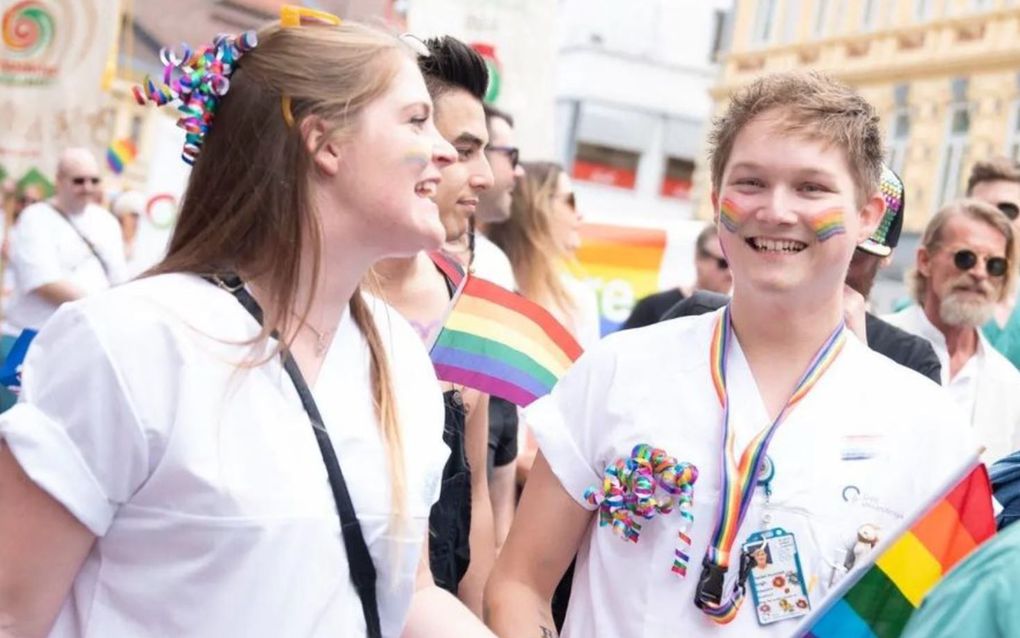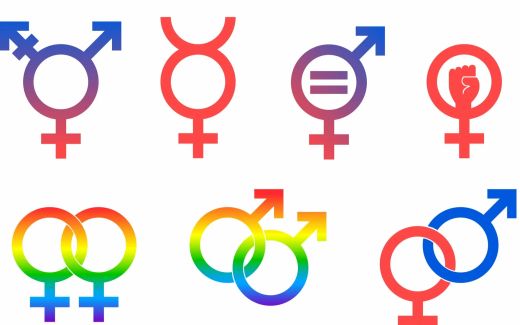Why do so many teenaged girls ask for gender reassignment?

Health care workers from the academic hospital in Oslo. Photo Instagram, oushf
Northern Europe
The gender clinic of the Rikshospitalet in Norway has never been so busy. Doctors experience an enormous increase in requests for gender reassigning treatments. The increase in requests has been the strongest among teenage girls who want to become boys.
In 2011, 19 girls came to the Rikshospitalet with the request for gender change. Last year, this number had increased to 165, doctor Anne Wæhre says to Tv2. Wæhre leads the team which investigates the gender identities of young people.
She says there are several explanations for the increase in inquiries in general. “Some complain about increased information, less stigmatisation and the use of social media”, she points out. Psychologist Asle Offerdal affirms that. “I think it is completely natural”, he says. “The increased access to information causes more people to question their own gender identity. There are better treatment options and easier access to procedures”, he adds. The trend of a growing number of gender reassignment requests is seen in several countries, such as the Netherlands, Sweden and Denmark.
External factors
However, it is difficult to explain why especially girls between 15 and 17 are requesting gender reassignment more often than before. “It makes us stop and think”, Wæhre says.
Several hypotheses have been launched to determine why girls are especially vulnerable to gender dysphoria. In 2018, a study from Brown University came up with a theory that social contagion and external factors may influence why more people get gender dysphoria in their teens. However, this theory has never been proven, and there has been critique that it lacks scientific evidence.
Yet, many support the thesis that social media significantly impacts how people view themselves. “To say outright that social influence does not affect the development of gender identity is completely contrary to reality”, American psychologist Erica Anderson said earlier. “Teenagers influence each other.”
Another proposed hypothesis is that it is easier for girls to identify as transgender than for boys. Astrid Højgaard from the Sexological Center in Aalborg, Denmark, explains that society finds it less problematic when a girl appears more masculine. “There is less ridicule, social shaming and transphobia”, she said earlier to the Danish newspaper Information.
That could explain why men and boys wait longer before contacting the gender clinic, doctor Wæhre says. “But even when boys come a bit later, there are not nearly as many males as females requesting gender reassignment.”
Lasting changes
Wæhre is concerned about the growing number of gender treatments. “They are very potent and irreversible”, she explains. “If you start on testosterone, you may experience lasting changes with a darker voice, facial hair growth and other changes that do not disappear again.”
Therefore, the gender doctor stresses that it is essential to carefully review each case before starting treatments. “It is common today to have these feelings, but not everyone should have medical treatment”, she says to Tv2. Wæhre fears that some children and young people will regret their treatments later on and be stuck with their irreversible consequences.
Some people think that the gender clinic is too strict in starting treatments. However, Wæhre disagrees. “It could be that we still treat too many people.”
However, until now, only a few cases have been known of people who regret their gender reassignment. According to statistics, only five patients have requested a change to their biological sex after undergoing hormonal and surgical gender reassignment in the past 15 years.
Related Articles






